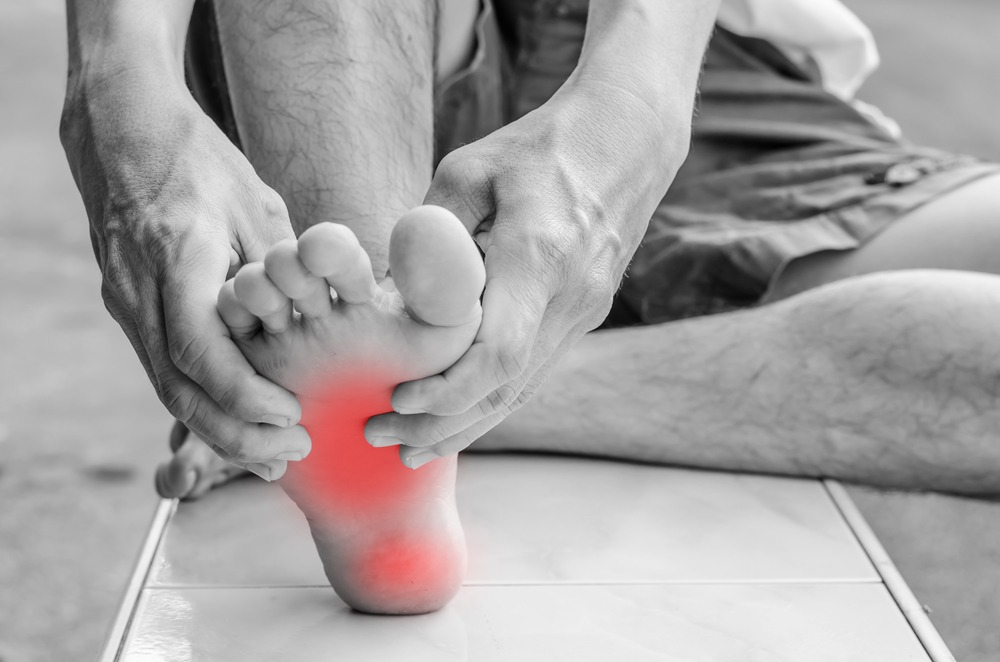Home > Ankle and Foot Pain After a Car Accident

Ankle and foot pain after a car accident is common, though unwanted. While rarely serious or life-threatening, it can disrupt your day-to-day activities and cause you to miss work. It can also impact your relationships when you can't participate in activities.
Most ankle and foot pain resolves within two to three weeks of prescribed treatment. If your condition doesn't improve or if it gets worse with time, you may have long-term mobility issues. In that case, you'll not only want to see a doctor or therapist but also a car accident injury lawyer who can help you file for damages.
What's Going on With My Ankle and Foot Pain After a Car Accident?
Because your ankle and foot usually absorb a good amount of pressure in a car collision, they will likely be sore after your accident. To help you understand what's going on down there with your bones, tendons, and joints, here are some common car accident injuries and how they may manifest as ankle and foot pain:
Lisfranc Injury
A Lisfranc injury is characterized by damage to the midpart of your foot, causing persistent pain, mobility restraints, and arthritis. This condition can take a while to heal - up to 10 weeks or more - and may require surgery to correct.
Heel Bone Fracture
Your heel bone, also called calcaneus, is susceptible to fracture in a high-impact collision. The result usually includes debilitating pain that goes away only when the fractured bone is surgically attached.
Ankle Sprains and Fractures
You have an ankle sprain if you have a torn or stretched tendon, muscle, or ligament. If you broke a bone, that's an ankle fracture. Either way, you will feel pain, but sprains should heal with rest, therapy, or compression and elevation of the affected foot as treatment. If the pain doesn't go away, you could be dealing with a more serious injury.
Compartment Syndrome
Compartment syndrome results from severe trauma to the many compartments of your foot. These compartments include your muscles, nerves, and tendons. This type of injury is excruciating and can cause your foot to lose function when untreated.
How Serious Can Foot and Ankle Pain Get?
Foot and ankle pain may be less problematic than internal organ damage or traumatic brain injury, but it's not something you can ignore either. The earlier you see a doctor for your foot and ankle pain, the sooner you can return to your normal activities.
The more you delay, the more you set yourself up for the following complications:
- Arthritis
- Chronic inflammation
- Degenerative changes
- A chronically unstable joint or foot
- Infection
- Permanently deformed foot
- Impaired walking
- Amputation
How Much Can I Get as Compensation?
As in any personal injury case, how much you can claim for damages will depend on several factors specific to your case, such as the extent of your injury, the value of your car damage, and the cost of your medical bills.
Generally, you can receive compensation for the following such losses:
- Medical bills, including hospitalization, ER services, and medication
- Physical therapy and other continuing treatments
- Medical equipment and devices you use
- Lost income
- Diminished capacity to earn income
- Pain and suffering
Who Is Liable for My Injury?
Establishing car accident liability depends on the circumstances of the case and the state laws involved. The driver at fault is usually responsible for the other parties' losses.
However, in no-fault states, everyone involved in the accident can collect payment from their respective insurers until their losses exceed a certain amount. When individuals reach that limit, they can sue the party at fault for damages.
While this may seem straightforward, other factors may come into play, such as comparative and contributory negligence doctrines. The percentage you contributed to the accident will be deducted from your total compensation in a comparative negligence state. In a contributory negligence state, you cannot sue for damages if you are proven to be even 1% at fault for the accident.
Do I Need a Lawyer to File for Damages?
Establishing liability and fault alone requires expertise in personal injury law. Some insurers will do everything to increase their profit, including crunching your payout in a perfectly legitimately claim. A personal injury lawyer will work for you to help you get the most you can in compensation while you focus on rest and recovery.
With a personal injury lawyer fighting for your rights, you can rest assured that you'll be back on your feet in no time.
Let Dolman Law Group Help You
Call Dolman Law Group today. You'll have a free consultation where you can get your questions answered and learn what possible steps you can take to move forward.
